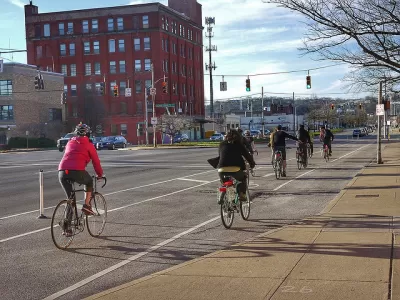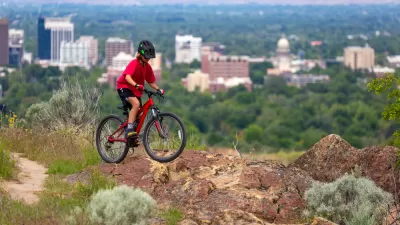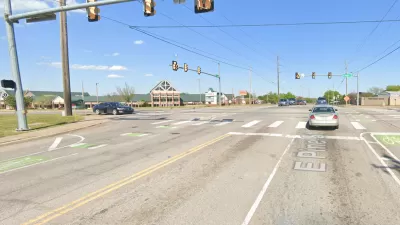Public outcry about the priority given protected bike lanes on streets can be mitigated when civic crowdfunding is part of the planning process, according to this article.

Kate Gasparro writes of the potential for civic crowdfunding to mitigate the "bikelash" that has created controversy when new protected bike lane infrastructure is installed in cities around the country, even leading to the removal of newly installed bike infrastructure in some locations.
"I’ve found that many places that have avoided bikelash as they roll out new protected bike lanes have something in common: a creative approach to cultivating public support" (i.e., crowdfunding), writes Gasparro. "Instead of encouraging residents to attend public meetings, city officials and local civic groups are meeting community members where they live and work."
Gasparro is a graduate research fellow at Stanford University, and these conclusions grow out of research into community engagement that created an "accidental" expertise in bike lanes. Here, Gasparro explains that history and the conclusion offered in this article in more detail:
During a four-year study of civic crowdfunding, I found that this collective fundraising technique has been used to support projects like protected bike lanes in non-monetary ways, such as building consensus. This is often a primary motivation for starting the campaign. The buy-in that crowdfunding brings about often proves far more valuable than any help paying the tab.
This happens because community organizations engage community members around the project. They convene discussions about the project in public spaces and at local businesses. During these events, nearby residents become acquainted with the proposed plans and voice their concerns before it’s too late to change course.
FULL STORY: Civic crowdfunding reduces the risk of ‘bikelash’

Planetizen Federal Action Tracker
A weekly monitor of how Trump’s orders and actions are impacting planners and planning in America.

San Francisco's School District Spent $105M To Build Affordable Housing for Teachers — And That's Just the Beginning
SFUSD joins a growing list of school districts using their land holdings to address housing affordability challenges faced by their own employees.

The Tiny, Adorable $7,000 Car Turning Japan Onto EVs
The single seat Mibot charges from a regular plug as quickly as an iPad, and is about half the price of an average EV.

With Protected Lanes, 460% More People Commute by Bike
For those needing more ammo, more data proving what we already knew is here.

In More Metros Than You’d Think, Suburbs are Now More Expensive Than the City
If you're moving to the burbs to save on square footage, data shows you should think again.

The States Losing Rural Delivery Rooms at an Alarming Pace
In some states, as few as 9% of rural hospitals still deliver babies. As a result, rising pre-term births, no adequate pre-term care and "harrowing" close calls are a growing reality.
Urban Design for Planners 1: Software Tools
This six-course series explores essential urban design concepts using open source software and equips planners with the tools they need to participate fully in the urban design process.
Planning for Universal Design
Learn the tools for implementing Universal Design in planning regulations.
Smith Gee Studio
City of Charlotte
City of Camden Redevelopment Agency
City of Astoria
Transportation Research & Education Center (TREC) at Portland State University
US High Speed Rail Association
City of Camden Redevelopment Agency
Municipality of Princeton (NJ)





























